- Home
- Sarah Woodbury
The Irish Bride Page 7
The Irish Bride Read online
Page 7
Gareth studied him, not so much surprised at his adamancy as concerned that he would limit their ability to investigate the death. Still, he could not refuse. “I promise.”
The bishop sat back in his seat, and his color instantly improved.
Gareth, however, could not let it go quite yet. “Even if we aren’t to speak of why he died, and honestly, I agree that any conclusion is premature, we have to consider that Harald knew he was going to die.”
The bishop’s expression turned grim. “Else why leave the paper there, you mean? Else why write it?”
Gareth nodded. It would have been far easier if Harald had spent his days in some other fashion, counseling the poor, perhaps, or tending to the laundry. Many monks weren’t literate and even fewer could write. Harald could do both, and the fact that he was a scribe and such an inflammatory note had been left on his bedside table gave greater weight to the idea that Harald had taken his own life.
If this death was a suicide, then it wasn’t really Gareth’s business anymore. A man couldn’t be brought to justice if he was already dead—and had killed himself.
Gareth wasn’t interested in antagonizing Bishop Gregory. He would have much preferred not to have been called to assist in the first place. But if Harald had arranged for his own slow death and laid himself on the altar in full armor, knowing that the bishop would be the one to find him, Gareth very much wanted to know why.
Chapter Eight
Day One
Gwen
Cait walked with Gwen to Godfrid’s house, where Gwen found her family settling in. Marged had bathed the children, and Tangwen excitedly showed Gwen all over the house. Taran was happy toddling after his sister long enough for Gwen herself to bathe and change, after which he appeared in front of her, arms upraised, demanding to be fed.
It was Gwen’s preference as well, so she swung him into her arms. A few moments later, she was ensconced in a padded rocking chair. And then a cup of mead, along with a roll dripping with butter and honey, appeared on the table at her elbow, thanks to Godfrid’s servant with an unpronounceable Danish name, something like Pridborn, but not. Rather than say his name, she just thanked him.
She was stuffing the roll into her mouth when Godfrid came through the door, and the look of surprise on his face had her laughing. “Being a mother means I’m always doing several things at once.”
He hastily rearranged his expression and came closer. “I am so glad you found the chair.”
“This was your idea?”
“It was.” Godfrid had a very low grumbly voice, and Taran was attempting to nurse and look at Godfrid out of the corner of his eye at the same time. Godfrid’s voice always attracted Tangwen’s attention too. “I confess, this is not a sight I have ever seen before in my own home.”
“God willing, it will be the first time of many.” Gwen was touched by his attention to her comfort. He had wanted everything to be perfect for their arrival.
He glanced around the room. “Is Cait here?”
“She went to Conall’s house to dress for dinner.”
“Then I can tell you. I feel I must tell you—” Godfrid pressed his lips together before speaking, and when he did speak, he’d lowered his voice so only she and Taran could hear. “She fears she will be unable to give me children. She had none with her first husband.”
It was every new wife’s fear. The judgment from others that came with the inability to conceive a child was terrifying and paralyzing. Many a wife had spent years on her knees, praying that it could be otherwise. Armies of women had gone to St. Gwenffrewi’s well in hopes of achieving what was otherwise impossible.
“But you are marrying her anyway.”
“I am.”
Gwen smiled to know Godfrid was just as good and whole as he had ever been. “As I understand it, her first husband had no children at all. It isn’t always the wife’s fault, you know.”
“I know that. But she worries.” He shrugged. “I have accepted the possibility. Being together is more important.”
“I agree, of course. Best not to worry. Best to take what God gives you.” She gestured to the door and beyond. “We have two grown sons we never expected.”
“That’s what I told her.”
“And really, you have to learn to master the fear because it doesn’t end with conceiving a child. The next fear is that you can’t give your husband a son, and the one after that is that the child won’t live to grow up. It’s never ending. But everyone has the capacity to have a family. We have adopted Llelo and Dai, and they are ours. Gareth will make dispensation for them equally with Taran.”
Godfrid nodded, and some of the tension in his expression eased. “That is the Danish way too.”
Gwen was glad Godfrid had shared his fears with her. “It’s no wonder you were drawn to Cait. She’s smart, beautiful, and tough. She lived as a slave!”
Godfrid laughed. “Don’t remind me!”
Though Gwen had gone out of her way to build a bridge between herself and Cait immediately, Cait’s beauty and station did make her less accessible. Gwen herself, especially as she was still nursing Taran and hadn’t lost all of the weight she’d gained during pregnancy, felt frumpy and unattractive by comparison. Her husband said otherwise, but he was biased.
Still, there was nothing like nursing a child for making one feel good about the world. By now, Taran had fallen asleep in her arms, and she eased him away from her breast and adjusted her clothing before looking back to Godfrid, who’d chosen that moment to speak with his steward.
At home, she would have laid Taran on a pallet on the floor, but when Gwen arrived in Dublin and tried to suggest to Godfrid’s housekeeper that she needn’t trouble herself with preparing a bed raised off the floor for the three of them, the look of horror that crossed her face was enough to stop Gwen from speaking further.
Instead, Gareth had found a straight-back chair to act as a guard on the side of the bed, but even with it, Gwen didn’t want to leave Taran upstairs by himself, not with the possibility of an unsupervised long fall to the floor below.
Once he was done conferring with his steward, Godfrid found a stool and pulled it close to Gwen, resting his elbows on his knees and studying her over the top of his clasped hands. “So, is it murder?”
“It could be.”
“Was it someone I know?”
“His name was Harald Ranulfson. He was a monk who worked in the scriptorium. I genuinely don’t know anything more about him except he was born in Dublin, and his mother still lives here. I confess the circumstances of his death are beyond strange.” And she told him the details as fully as she could remember.
“A scribe, eh. That would be a good reason to kill yourself right there. To be locked away all day in a room transcribing documents and books ...” He shook his head.
“For you, that would indeed be hell on earth.” Gwen laughed. “But Bishop Gregory did not perceive it was so for Harald. He had beautiful handwriting. And suicide is rare enough and so dire for a man’s soul that every time it happens it must be questioned and not assumed, especially when the dead man is a monk who should feel in his bones that suicide is a mortal sin.”
“I can’t remember the last person to take his own life in Dublin. There are better ways to kill yourself without putting yourself outside the bounds of the Church.”
Gwen’s brow furrowed. “What do you mean?”
“I can see it might be different for a woman, but a man has options.” Godfrid rubbed his nose. “He could make a mistake with an axe while chopping wood; he could fall overboard while out fishing; he could trip and fall off the wall-walk. Any of those methods would be aided by becoming insensate with drink, as you say Harald was. A man can come to grief in all sorts of terrible ways, none of which would prevent the priest from burying him in holy ground. But Harald dressed himself in armor, put himself on display, and left a note. Nobody leaves a note.”
“Few can write,” Gwen pointed out.
&nb
sp; Godfrid made a dismissive gesture. “He wanted his death to be called a suicide. Why? To shame the bishop? To cause unrest in the monastery?”
“We still have no idea.” Gareth came in the door behind Godfrid and approached, Llelo in tow. “And with all you just said, I am not convinced he killed himself.” He paused and a curious expression entered his eyes. “It could be it wasn’t he who left the note.”
“Gwen said it was written in his handwriting,” Godfrid said.
“True, but the quote was from the Bible.”
“In Danish.”
“True again, but I still can’t help feeling maybe this isn’t what it looks like.”
Gwen’s eyes met her husband’s and they both smiled. It was only the first hours of the investigation, but this was getting to the meat of the issue.
Gareth now made a dismissive gesture with one hand. “Regardless, the bishop begged us not to speak of the possibility of suicide to anyone for now.”
Godfrid bent his head. “That probably meant me too.”
“I would rather not mar the lead up to the wedding with this anyway,” Gareth said. “Harald died. How and why does not need to be booted about.”
Godfrid rose to his feet and now hugged Gareth again. “I’m so glad you came. And you too boy—” He pulled Llelo into his embrace as well. Llelo had never experienced a full Godfrid hug before, and his pale skin reddened—whether from embarrassment or from being squeezed Gwen didn’t know. He was of the age that too much affection from his elders made him uncomfortable.
Affection from girls was another matter, and though he’d just walked in the door, he was already eyeing Godfrid’s steward’s daughter, a blonde-haired, blue-eyed Danish beauty. Gareth had spoken to him on the subject of the local girls around their home on Anglesey and in Llanfaes, the palace on the Menai Strait where they’d been staying most recently.
As Llelo’s color returned to normal, Gwen studied him, thinking of the coin and where the investigation of it might lead them. She knew of no brothels anywhere in Gwynedd. If they had to seek out the ones in Dublin, Gareth would have to have another conversation with Llelo.
That was a private matter between father and son, however, so Gwen didn’t share her thoughts. Instead she said, “Am I to gather from your manner that Bishop Gregory didn’t have any insight into the matter?”
“Not to speak of. He was horrified by the note, of course.” Gareth emptied his purse on the nearby table, showing Godfrid both the note and the coin.
Godfrid turned the coin over in his hand, as they all had done. “It means nothing to me. And I am disturbed by that fact.”
“I’m disturbed by the fact that the coin has meant nothing to anyone we’ve showed it to so far, not that we’ve asked many.” Gareth sighed. “That and tracing Harald’s movements on his last day and night will be the morning’s task.”
Godfrid’s expression turned regretful. “I was hoping to forge better memories of Dublin for you this time! I’m sorry you are faced with a death on your very first day.”
“Better than the last day, I suppose. While I hear that you, Cait, and Conall comported yourself creditably on your own, I can’t be sorry I’m here if I can follow this investigation wherever it leads instead of adding it to your burdens.” Gareth’s sorrowfulness dissipated, to be replaced by something a little more intense. “Should I be working with your sheriff? You mentioned you have one.”
“I sent a messenger to him. He should be coming by the house in the next hour.”
“Which gives you time to tell your story,” Gwen said to the big Dane. “I want to hear all about how you and Cait came together ... from the beginning!”
Thus the next half-hour was spent companionably with Godfrid, who regaled them with the story of his spring and summer, including its murder, intrigue—and love. By the end, any lingering concerns Gwen might have had about his relationship with Cait were gone. It was convenient, him falling in love and wanting to marry a woman who was not only the niece of the King of Leinster but the sister of his good friend. But she could see the love in Godfrid’s eyes and hear it in his voice when he spoke of Cait. Gwen had already noted the same love in Cait’s voice when she talked of Godfrid.
As Godfrid was winding down, a staccato knock came at the door. The steward, who was apparently party to all of Godfrid’s secrets, since he’d been in the room for the telling of Godfrid’s story, hastened to open the door. Since Gwen had just heard the saga of Holm’s elevation to sheriff, his support of Ottar, and his coming to terms with his new allegiance to Godfrid and Brodar, she was very interested to meet him.
As expected, he was her age or younger—middle twenties or thereabouts—with blond hair and blue eyes, as had many Danes (though not all). He was shorter than Godfrid, though most men were, and more slender. At only twenty-five, he might not have entirely grown into his adult shape. In the years between twenty and thirty, Gareth had filled out more broadly, though now he complained that he had a bit more of a protruding belly than he wanted. Gareth was only thirty-three—not exactly into old age—and Gwen couldn’t see it. She supposed she wouldn’t have told him if she did, any more than he would suggest she wasn’t as lovely as she’d been the day he married her.
Holm bowed and then said in stilted Welsh, “I am pleased to meet you.”
“We are pleased to meet you too,” Gareth said in equally stilted Danish.
Then there was a pause. Gwen had no more proficiency in the language than her husband, and Godfrid had already told them Holm didn’t speak French. The Welsh he’d spoken was the full extent of his knowledge, and she gave him credit for learning it, seemingly for the express purpose of greeting them.
Thus, Godfrid took charge, launching into Danish in order to relate to Holm a summary of the investigation, to which Holm nodded and replied after every other sentence. When Godfrid got to the note and the coin, however, Holm hesitated before touching either of them.
Godfrid turned to Gareth and Gwen. “He says he knew Harald growing up, and his family has lived in Dublin for several generations. I have no idea if it’s relevant, but Harald’s brother died following Ottar.”
“He was a follower of Ottar or he died among his following?” Gwen said. “They are not the same thing.”
“They are not.” Godfrid gave a sharp nod. “He was a follower. And I mean that both ways. Toki wasn’t a clever man, and he was easily led. He never questioned Ottar’s leadership and leapt at the chance to serve him.”
“You know this for certain?”
“Many days I sat in Ottar’s hall while Toki smirked at me from his post behind Ottar.”
Gareth’s eyes widened. “You’re saying he was a member of Ottar’s guard?”
“He was.” Godfrid turned back to Holm and spoke a stream of Danish, and they went back and forth, ending when Holm replied in what clearly was the affirmative: “Ja.”
Again, Godfrid turned to Gareth and Gwen. “He doesn’t know the origin of the coin, but something in the back of his mind is itching—his words—and he will think about where he might have seen one before. Among his men, he thinks. He was raised to the station of sheriff too young, and before that he was the undersheriff. He was never a common guard, so he is still learning their ways.”
“You’re saying he wouldn’t necessarily know what they were up to in their off hours—such as if they were visiting a brothel?” Gareth said.
“That is exactly what we mean. He acknowledges the problem, but he will inquire among his men about the coin and about Toki and Harald. I told him to report his findings to me.”
“Since we don’t speak Danish.” Gwen’s tone was displeased.
“You must learn quickly!”
“I am trying, but it isn’t easy.” Gwen tilted her head. “Do you trust him?”
Holm was standing right there, but as extra protection Gwen had spoken these words in Welsh, which Godfrid could speak passably well.
“I surprise myself by saying it, but I
do. In this, certainly.”
“Even if it turns out Harald’s death has something to do with the fall of Ottar?” Gareth asked.
“Hard to imagine from here, months later, how that might be, but even so, my brother is the rightful King of Dublin. We truly have nothing to hide.”
Gwen nodded. “Then I suggest you entrust him with speaking to Harald’s mother. She has to be asked about the possibility of suicide, whether the bishop likes it or not. And at a minimum, we need to know when she last saw him and what he was doing. Did she know he had a full set of armor and a sword? Did they belong to his brother? Since her other son served Ottar, none of us here will get the truth from her. But Holm might.”
Godfrid nodded his instant agreement and turned back to Holm.
Initially Holm’s expression was impassive, but the more Godfrid spoke, the brighter the sheriff’s eyes became until he was nodding vigorously. Finally, he bowed to Gwen and Gareth again and said, “Ja. Jeg vil gøre mit bedste for dig.” He departed.
Gwen stared after him. “It could be I almost understood that.”
“He said he would do his best for us.” Godfrid grinned. “He and I have come a long way since that day at Rikard’s warehouse.”
Chapter Nine
Day One
Cadoc
As a Welshman who’d spent his life amongst foreigners of every stripe and condition, Cadoc was used to being an outsider. But this was the first time in a long while that he’d been somewhere he couldn’t communicate beyond hand signals. He spoke Welsh, French, English, and Gaelic. The last was even one of his first languages, because one of his grandmothers had been Irish and refused to learn Welsh. For her entire life, she’d tolerated her family speaking Welsh to her while she replied in Gaelic. He had thought knowing the language might come in handy in Ireland, and it still might, if he had cause to speak to King Diarmait or maybe Caitriona. But so far, all he’d heard was Danish.
Brodar’s hall was adorned with trophies from bygone times, acquired, Cadoc assumed, on raids from Galway to St. David’s. The average Welshman had no love for Danes, having been on the receiving end of their axes for several hundred years. Like Cadoc’s granny, Prince Hywel’s mother had been Irish, but he had Danish blood too from his father. And, as Cadoc watched, somewhat grouchily, his prince conversed in Danish with Brodar, having already made his greetings to King Diarmait in fluent Gaelic.

 The Good Knight
The Good Knight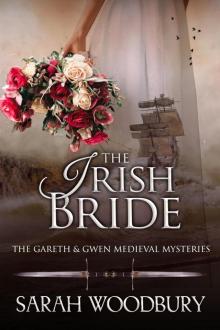 The Irish Bride
The Irish Bride Refuge in Time
Refuge in Time Masters of Time
Masters of Time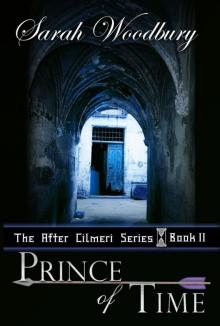 Prince of Time (Book Two in the After Cilmeri series)
Prince of Time (Book Two in the After Cilmeri series)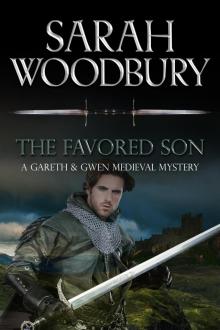 The Favored Son
The Favored Son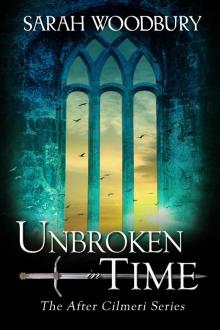 Unbroken in Time
Unbroken in Time![[The Lion of Wales 01.0] Cold My Heart Read online](http://i1.bookreadfree.com/i/03/22/the_lion_of_wales_01_0_cold_my_heart_preview.jpg) [The Lion of Wales 01.0] Cold My Heart
[The Lion of Wales 01.0] Cold My Heart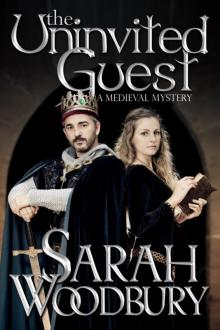 The Uninvited Guest
The Uninvited Guest The Pendragon's Blade (The Last Pendragon Saga Book 2)
The Pendragon's Blade (The Last Pendragon Saga Book 2)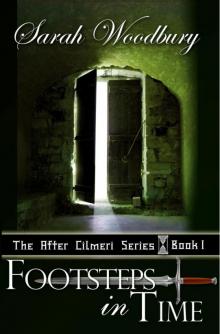 Footsteps in Time
Footsteps in Time Castaways in Time (The After Cilmeri Series)
Castaways in Time (The After Cilmeri Series) Winds of Time
Winds of Time Of Men and Dragons (The Lion of Wales Book 3)
Of Men and Dragons (The Lion of Wales Book 3) Champions of Time
Champions of Time The Pendragon's Challenge (The Last Pendragon Saga Book 7)
The Pendragon's Challenge (The Last Pendragon Saga Book 7) Rise of the Pendragon (The Last Pendragon Saga Book 6)
Rise of the Pendragon (The Last Pendragon Saga Book 6) The Worthy Soldier
The Worthy Soldier The Last Pendragon (The Last Pendragon Saga Book 1)
The Last Pendragon (The Last Pendragon Saga Book 1) The Fallen Princess
The Fallen Princess The Pendragon's Champions (The Last Pendragon Saga Book 5)
The Pendragon's Champions (The Last Pendragon Saga Book 5)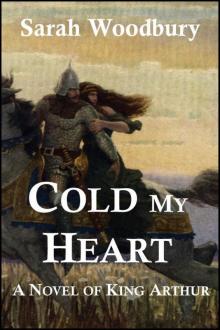 Cold My Heart: A Novel of King Arthur
Cold My Heart: A Novel of King Arthur A Long Cloud (The Lion of Wales Book 4)
A Long Cloud (The Lion of Wales Book 4) Frost Against the Hilt (The Lion of Wales Book 5)
Frost Against the Hilt (The Lion of Wales Book 5) Daughter of Time: A Time Travel Romance
Daughter of Time: A Time Travel Romance Outpost in Time
Outpost in Time Shades of Time kobo
Shades of Time kobo The Pendragon's Quest (The Last Pendragon Saga Book 4)
The Pendragon's Quest (The Last Pendragon Saga Book 4) The Unexpected Ally
The Unexpected Ally Crossroads in Time (The After Cilmeri Series)
Crossroads in Time (The After Cilmeri Series)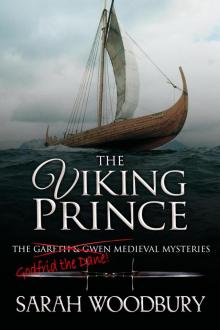 The Viking Prince
The Viking Prince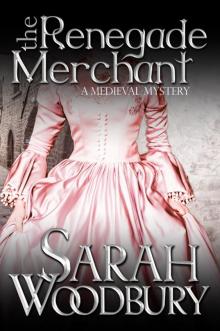 The Renegade Merchant
The Renegade Merchant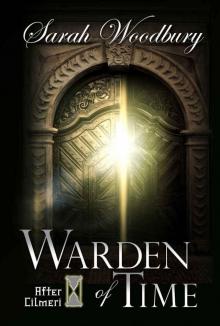 Warden of Time (The After Cilmeri Series Book 8)
Warden of Time (The After Cilmeri Series Book 8)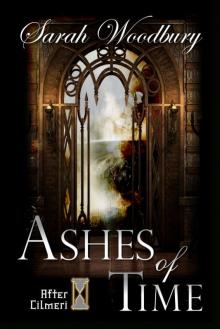 Ashes of Time (The After Cilmeri Series)
Ashes of Time (The After Cilmeri Series) Exiles in Time (The After Cilmeri Series)
Exiles in Time (The After Cilmeri Series) The Unlikely Spy
The Unlikely Spy The Fourth Horseman
The Fourth Horseman The Oaken Door (The Lion of Wales Book 2)
The Oaken Door (The Lion of Wales Book 2) Song of the Pendragon (The Last Pendragon Saga Book 3)
Song of the Pendragon (The Last Pendragon Saga Book 3) Champions of Time (The After Cilmeri Series, #13)
Champions of Time (The After Cilmeri Series, #13) Guardians of Time
Guardians of Time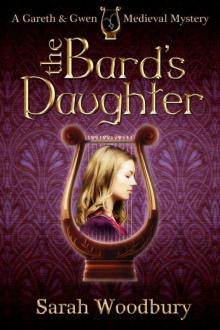 The Bard's Daughter (A Gareth and Gwen Medieval Mystery)
The Bard's Daughter (A Gareth and Gwen Medieval Mystery)